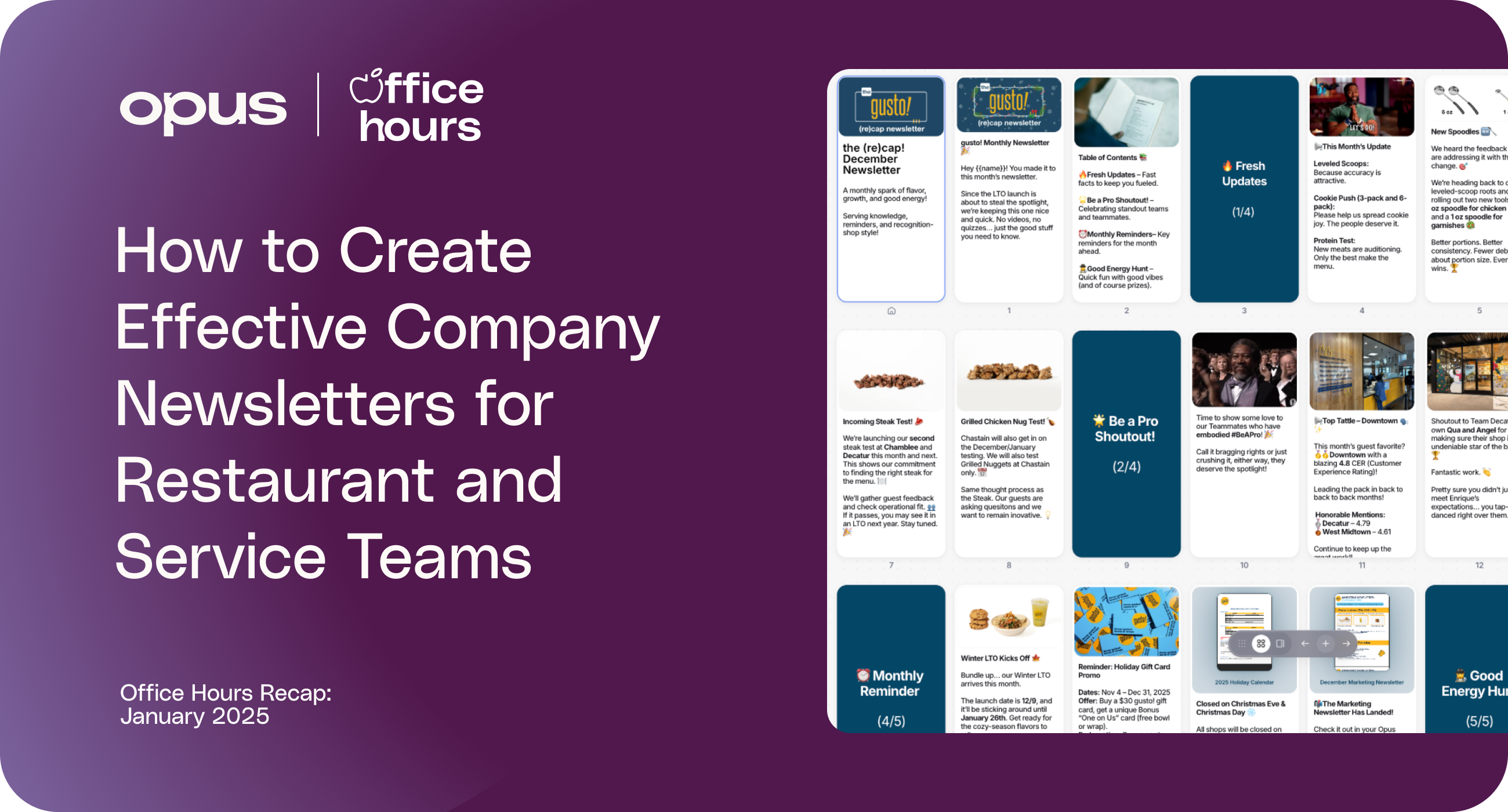We sat down with Emily Rosenberg, the Director of Education at Stumptown Coffee Roasters, to discuss the unique aspects of training for the café industry. Emily has been with Stumptown Coffee based in New York for nearly 9 years with the last 3 as the Director of Education. Previously, she was the Drink Training Manager at Diesel Cafe & Bloc 11 Cafe in Somerville, MA.
The Evolution of Training
Emily noticed an ever-evolving stance over the years regarding training: at some points, training is a priority and employers invest heavily in training, at other points, training may take a backseat when there are other priorities. The emphasis on which type of information to prioritize tends to shift periodically, whether that is a focus on skill-building or general knowledge building. “There’s been a refinement and tailoring of the content and approach of coffee education to the occupation more, instead of thinking of training as “school.” - Emily Rosenberg.
The Human Centered Approach
Over time, as more trainers come into the industry and more people learn about adult education, there’s a greater understanding of what works best for training employees. The human aspect of training is too important to give up, as there are some things that a digital platform cannot replace. Emily gave the following example: there is no one-to-one swap for standing next to someone and tasting coffee together for palate development and calibration. These skills require real-time experiences.
Implementing feedback is another way that coffee shops can improve their training. Emily says that if they receive consistent feedback about an issue for a specific store, then they can take action and make sure everyone has the skills they need to be successful. “The feedback we get from store managers influences our training the most. Ultimately, they’re the ones with their teams every single day.” Managers provide insights into what customers are experiencing as well as how their own teams are doing. By improving training for employees, the customer experience will be improved as well. Consistency with great coffee preparation is key!
Implementing Technology for Learning
Emily says, “Our goal is for people to understand what we're trying to teach them as easily as possible.” Since there are different styles of learning, being responsive to these styles is really important in order to be successful in implementing technology for learning. Emily believes that “technology has become more ubiquitous in our lives and impacts how people learn and how they expect to absorb information.” There’s a greater comfort now with digital media, and technology also impacts how quickly employees expect to get information. Responding to how people learn is key to training your teams successfully.
With technology, Stumptown Coffee is able to share and update documents immediately, which Emily highlights as a useful tool. Technology also allows us to collect data on things we never would have before. For example, Emily shared some info on technology integrated into espresso machines. “Increasingly, there is technology that connects an espresso machine into a platform where target brewing parameters can be established and then each shot of espresso is recorded, which allows a trainer or manager to oversee how consistently baristas are brewing to those targets.” Emily is interested in how this data can be useful for more comprehensive quality control and in targeting training needs across Stumptown’s cafes, and she’s curious about how future technology develops.
Blending Digital & In-Training
For Emily, an advantage digital training has over paper training is the ability to integrate more audio and visual components. Emily also says that digital training “allows for training to happen in more places than just the training lab or cafe, which can improve accessibility.” However, digital training cannot fully replace the calibration happening when training sensory skills and tasting coffee together.
Emily also shared 2 key pieces of advice that resonate not just for the coffee industry, but across all of the hospitality industry. First: “Think of training as the opportunity to bring people in, rather than exclude.” To be effective, your training needs to be inclusive of every member of your team. And second: “Think of training as hospitality itself: you want to make people feel welcome and comfortable.” It’s important to not only be hospitable to your customers but to be hospitable to your employees too. This will help with retaining employees.







